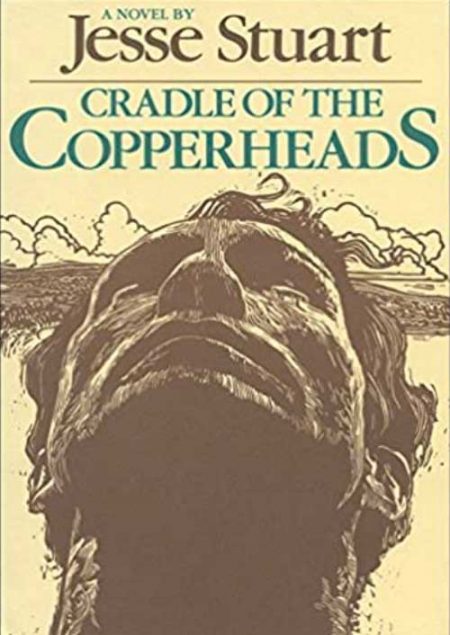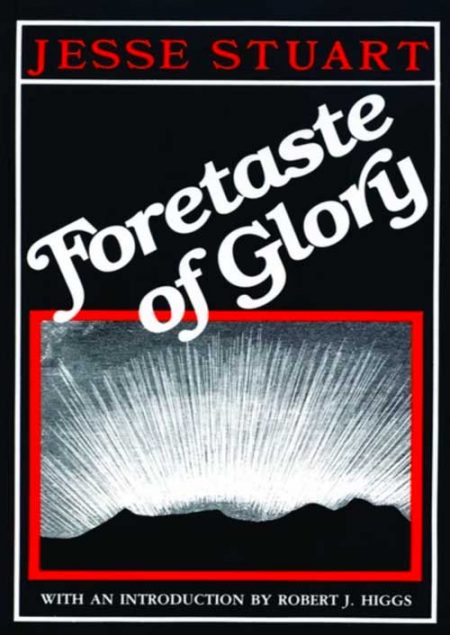-
 The thirty-four stories in this collection, selected from Stuart’s 460 published stories, reveal the variety and range of his fictional world. Some reflect the excitement of growing up in Appalachia. Others portray the comedy and tragedy in the lives of the strong, rough-hewn characters of his world. Running through all of them, like a golden thread, is Stuart’s celebration of the land and its rhythms of life. SOFTBACK By Jesse Stuart
The thirty-four stories in this collection, selected from Stuart’s 460 published stories, reveal the variety and range of his fictional world. Some reflect the excitement of growing up in Appalachia. Others portray the comedy and tragedy in the lives of the strong, rough-hewn characters of his world. Running through all of them, like a golden thread, is Stuart’s celebration of the land and its rhythms of life. SOFTBACK By Jesse Stuart -
Out of stock
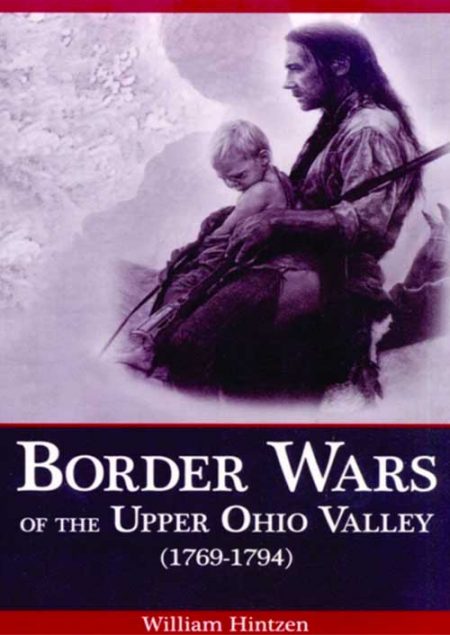 Border Wars of the Upper Ohio Valley is the story of the Trans-Allegheny movement in the quarter-century from 1769-1794. It embraces the area of the present United States from western Pennsylvania to the Mississippi, and from the Great Lakes southward into Tennessee. The story of this westward movement begins with the emigration of the Zane family from the South Branch of the Potomac River, from their home near Moorefield, in present Hardy County, West Virginia, to the mouth of Wheeling Creek in the panhandle of that state, and concludes with Anthony Wayne’s victory over the confederated Indian tribes at Fallen Timbers. William Hintzen’s book brings back the days of Daniel Boone, the Zane family (founders of Wheeling), Simon Kenton, Lewis Wetzel (Death Wind, as the Indians knew him), the 1777 siege of Fort Henry, the Girty brothers, Sam McCo9lloch, Betty Zane’s dash for gunpowder, the remarkable Wetzel family, Sam Brady, George Rogers Clark and Mad Anthony Wayne’s final victory at Fallen Timbers. By William Hintzen
Border Wars of the Upper Ohio Valley is the story of the Trans-Allegheny movement in the quarter-century from 1769-1794. It embraces the area of the present United States from western Pennsylvania to the Mississippi, and from the Great Lakes southward into Tennessee. The story of this westward movement begins with the emigration of the Zane family from the South Branch of the Potomac River, from their home near Moorefield, in present Hardy County, West Virginia, to the mouth of Wheeling Creek in the panhandle of that state, and concludes with Anthony Wayne’s victory over the confederated Indian tribes at Fallen Timbers. William Hintzen’s book brings back the days of Daniel Boone, the Zane family (founders of Wheeling), Simon Kenton, Lewis Wetzel (Death Wind, as the Indians knew him), the 1777 siege of Fort Henry, the Girty brothers, Sam McCo9lloch, Betty Zane’s dash for gunpowder, the remarkable Wetzel family, Sam Brady, George Rogers Clark and Mad Anthony Wayne’s final victory at Fallen Timbers. By William Hintzen -
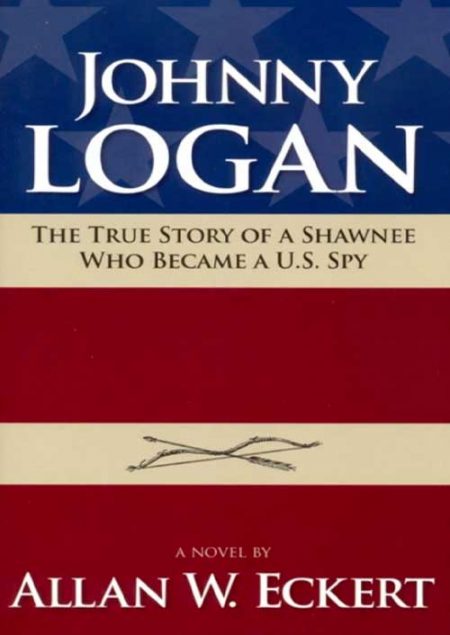 Blue Jacket’s popularity inspired Allan W. Eckert to write Johnny Logan, the true story of a Shawnee who became a U.S. spy, and it was first published in 1983. Logan was one of the greatest Indian friends the white man ever had on the American frontier; and he was the only Native American buried with full United States military honors. By Allan Eckert
Blue Jacket’s popularity inspired Allan W. Eckert to write Johnny Logan, the true story of a Shawnee who became a U.S. spy, and it was first published in 1983. Logan was one of the greatest Indian friends the white man ever had on the American frontier; and he was the only Native American buried with full United States military honors. By Allan Eckert -
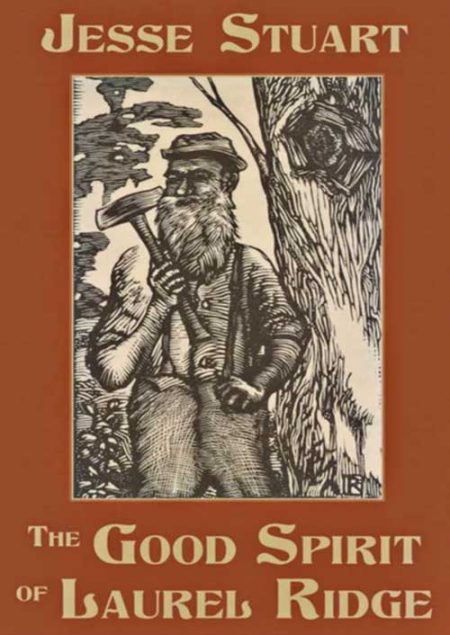 In The Good Spirit of Laurel Ridge, Jesse Stuart provides a tale of the Kentucky hill country which constantly excites, amuses, and amazes. The central character of this book is Theopolis Akers, "Old Opp" to his friends, the hermit of Laurel Ridge who is recognized as one of Stuart's most colorful character creations. Hermit, squatter, steadfast believer in the world of the spirits (sperets, he calls them), "Old Opp" lives a simple life atop deserted Laurel Ridge. He spends his days tilling his small patch of corn, gathering roots and nuts, or fishing with his bow and arrow. By night he sits on his porch, chews calmus weed, and listens to the wind blowing through the horse-hair harp strung up on the cabin wall. If he wants company, there is always his hound dog to talk to or various spirits to commune with including his dead wife, Beadie. By Jesse Stuart
In The Good Spirit of Laurel Ridge, Jesse Stuart provides a tale of the Kentucky hill country which constantly excites, amuses, and amazes. The central character of this book is Theopolis Akers, "Old Opp" to his friends, the hermit of Laurel Ridge who is recognized as one of Stuart's most colorful character creations. Hermit, squatter, steadfast believer in the world of the spirits (sperets, he calls them), "Old Opp" lives a simple life atop deserted Laurel Ridge. He spends his days tilling his small patch of corn, gathering roots and nuts, or fishing with his bow and arrow. By night he sits on his porch, chews calmus weed, and listens to the wind blowing through the horse-hair harp strung up on the cabin wall. If he wants company, there is always his hound dog to talk to or various spirits to commune with including his dead wife, Beadie. By Jesse Stuart -
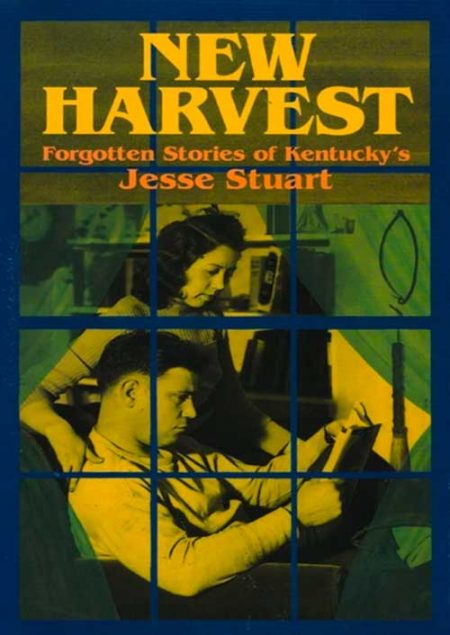 This selection of stories span Stuart's entire career as a writer of short stories. None of the stories have been previously published in any of the collections of his short stories. The book includes Stuart's thoughts on the literary form of the short story, first published in 1975, and never reprinted. David R. Palmore searched through many magazines and journals, some quite obscure, to bring together the collection. By Jesse Stuart
This selection of stories span Stuart's entire career as a writer of short stories. None of the stories have been previously published in any of the collections of his short stories. The book includes Stuart's thoughts on the literary form of the short story, first published in 1975, and never reprinted. David R. Palmore searched through many magazines and journals, some quite obscure, to bring together the collection. By Jesse Stuart -
 This is the journal Jesse Stuart kept following his near fatal heart attack in 1955. It was a time of his severest trial yet greatest fulfillment which began in an oxygen tent and ended with his happy return to a full and vigorous life. Here are the innermost feelings and moods of a man whose heart may give out at any moment, the new respect and even love that he develops for his heart, his thoughts about God, life, land, and home. By Jesse Stuart
This is the journal Jesse Stuart kept following his near fatal heart attack in 1955. It was a time of his severest trial yet greatest fulfillment which began in an oxygen tent and ended with his happy return to a full and vigorous life. Here are the innermost feelings and moods of a man whose heart may give out at any moment, the new respect and even love that he develops for his heart, his thoughts about God, life, land, and home. By Jesse Stuart -
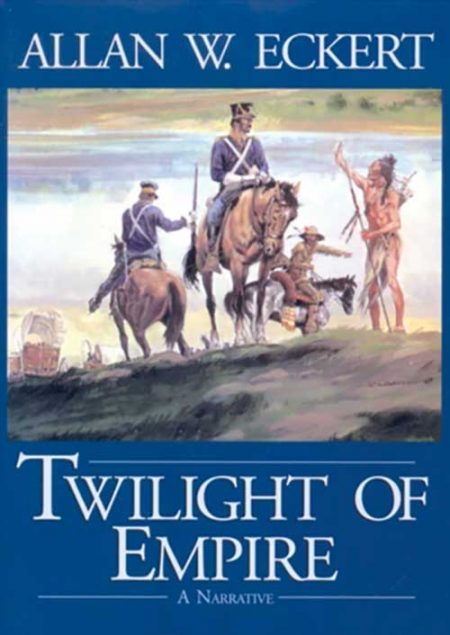 The Winning of America Series: Book 6 of 6 Twilight of Empire, the sixth and final volume in Allan W. Eckert’s highly acclaimed "The Winning of America" series, continues the tale of America’s westward expansion and the trickery, warfare, purchase, theft, and treaty through which it was achieved. Eckert immerses the reader in the history of the Northwest Territories and the Louisiana Purchase during the first half of the nineteenth century as he relates the dramatic events presaging and composing the Black Hawk War of 1832. It is a story with heroes and scoundrels on both sides and is peopled with men whose names have gone down in history. SOFTBACK & HARDBACK By Allan Eckert
The Winning of America Series: Book 6 of 6 Twilight of Empire, the sixth and final volume in Allan W. Eckert’s highly acclaimed "The Winning of America" series, continues the tale of America’s westward expansion and the trickery, warfare, purchase, theft, and treaty through which it was achieved. Eckert immerses the reader in the history of the Northwest Territories and the Louisiana Purchase during the first half of the nineteenth century as he relates the dramatic events presaging and composing the Black Hawk War of 1832. It is a story with heroes and scoundrels on both sides and is peopled with men whose names have gone down in history. SOFTBACK & HARDBACK By Allan Eckert -
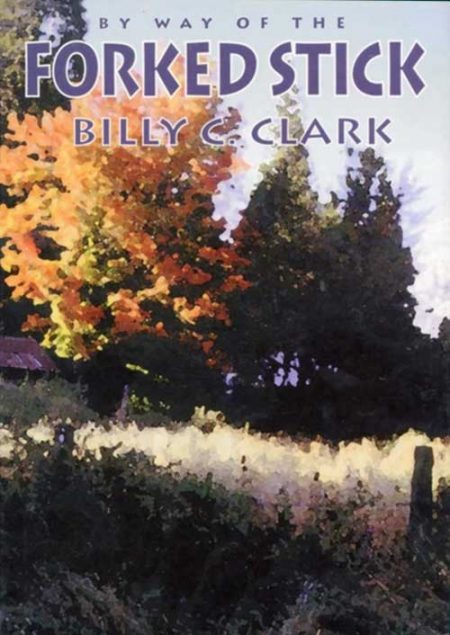 In the little Appalachian town of Sourwood, life at the end of the Great Depression may have been tough, but it was rich beyond compare. Building on a distinguished body of work celebrating and preserving mountain culture, renowned writer Billy C. Clark once again revisits his boyhood during a bygone era. By Way of the Forked Stick offers four fictional stories drawn from the author's childhood experiences of the 1930s—tales that vividly convey the down-home spirit of a lost way of life. By Billy C. Clark
In the little Appalachian town of Sourwood, life at the end of the Great Depression may have been tough, but it was rich beyond compare. Building on a distinguished body of work celebrating and preserving mountain culture, renowned writer Billy C. Clark once again revisits his boyhood during a bygone era. By Way of the Forked Stick offers four fictional stories drawn from the author's childhood experiences of the 1930s—tales that vividly convey the down-home spirit of a lost way of life. By Billy C. Clark -
 The Enduring Hills was the first of many novels Janice Holt Giles wrote in her lifetime. Based in part on her own experience with the Kentucky mountain country, this is the story of Hod Pierce, a young man who grows up on Piney Ridge, where generations of Pierces have made a living from stubborn soil. Hod loves his people and the land but longs for wider horizons, for more education, and for the freedom he imagines can be found in the outside world. It takes World War II to carry Hod away from the Ridge and out into the world, and it takes his city-bred wife to make Hod realize that Piney Ridge will always be home. SOFTBACK VERSION By Janice Holt Giles
The Enduring Hills was the first of many novels Janice Holt Giles wrote in her lifetime. Based in part on her own experience with the Kentucky mountain country, this is the story of Hod Pierce, a young man who grows up on Piney Ridge, where generations of Pierces have made a living from stubborn soil. Hod loves his people and the land but longs for wider horizons, for more education, and for the freedom he imagines can be found in the outside world. It takes World War II to carry Hod away from the Ridge and out into the world, and it takes his city-bred wife to make Hod realize that Piney Ridge will always be home. SOFTBACK VERSION By Janice Holt Giles -
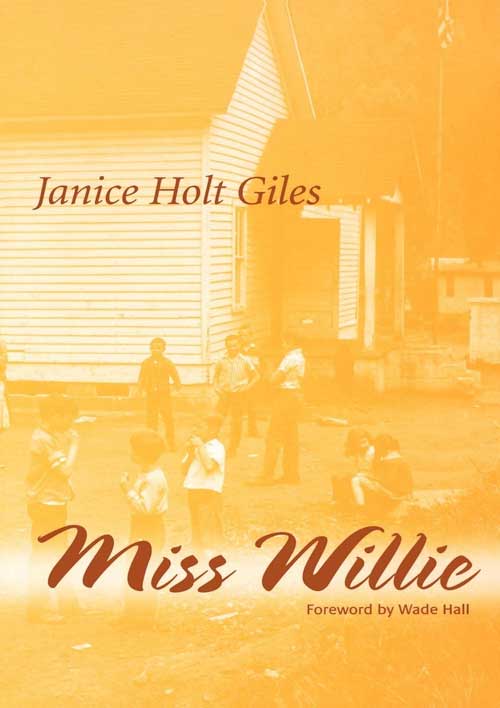 Miss Willie, first published in 1951, is part of Giles's Piney Ridge Trilogy. It tells the story of an earnest teacher who moves to the hills of Kentucky to teach in a one-room schoolhouse. Zealously, she tries to change the ways of the stubborn and proud Appalachian people, but to no avail. They listen to her ideas about sanitation and other foolishness because to argue would be rude. But in the end they quietly go about their accustomed ways. Ultimately, Miss Willie realizes that the hill customs have a beauty and dignity of their own and that some of her efforts to reform them were ill-conceived. Her warmth, generosity, and humor help her bridge the gap and find fulfillment in Piney Ridge. This is a story of reconciliation and the coming together of two different ways of life. Above all, it is a story of people and of the land to which they belong. SOFTBACK VERSION By Janice Holt Giles
Miss Willie, first published in 1951, is part of Giles's Piney Ridge Trilogy. It tells the story of an earnest teacher who moves to the hills of Kentucky to teach in a one-room schoolhouse. Zealously, she tries to change the ways of the stubborn and proud Appalachian people, but to no avail. They listen to her ideas about sanitation and other foolishness because to argue would be rude. But in the end they quietly go about their accustomed ways. Ultimately, Miss Willie realizes that the hill customs have a beauty and dignity of their own and that some of her efforts to reform them were ill-conceived. Her warmth, generosity, and humor help her bridge the gap and find fulfillment in Piney Ridge. This is a story of reconciliation and the coming together of two different ways of life. Above all, it is a story of people and of the land to which they belong. SOFTBACK VERSION By Janice Holt Giles


